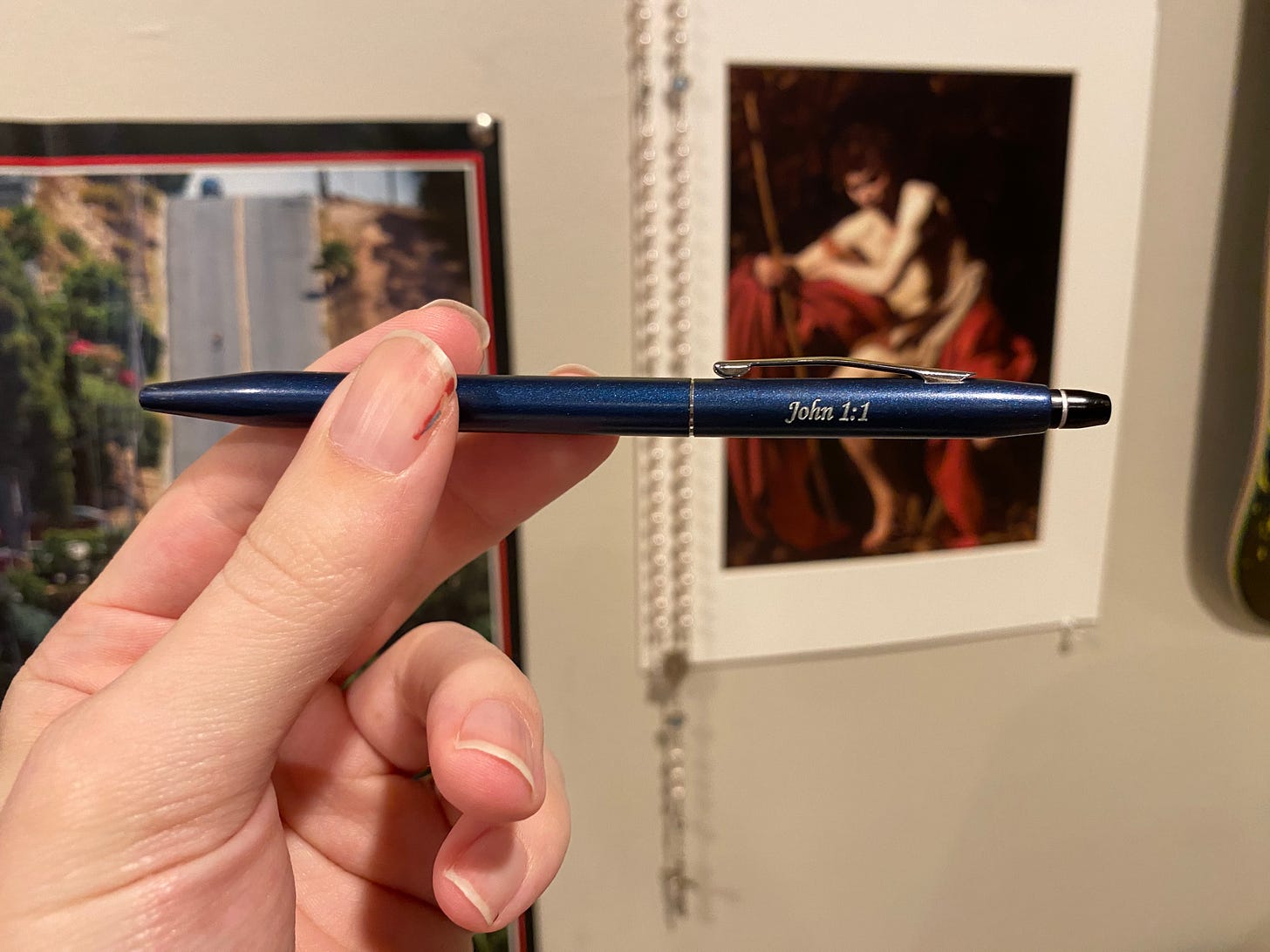Call me John the Baptist in your prayers, this wild man dressed in skins black as midnight howling about this garden of delight falling from the mouth of speechless fathers. I eat cicadas and mother’s honey, preach in the glen to he who has two coats, baptize the word, so that the word may float, and daughter’s prison keeps my tongue cunning. Although I’m not fit to shine the word’s shoes, my mother foretold with sisterly sway, “this shall be the word we all shall pray!” Though this art of words will turn my head loose. Now I serve bloody wine and fleshy host so the word my baptize with holy ghost.
Was feeling inspired by the spiritual writing I find on Substack and The Ecclesiastical Sonnets of William Wordsworth, and so I thought I would try something directly Christian.
My mother-in-law who is also a writer wanted to buy me a special pen inscribed with my favorite Bible verse. John 1:1 immediately came to mind, easy to remember, and thematically relevant to my career as a poet, from the King James, “In the beginning was the Word, and the Word was with God, and the Word was God.” Hence the verse is the title of the sonnet, and establishes John the Baptist as the speaker and subject.
I wanted to play with Melville, and this idea that John represents Ishmael as Jesus represents Isaac in the Christian covenant. So the first line begins with, “Call me John the Baptist” as Moby-Dick begins “Call me Ishmael.” This establishes an American voice in John the Baptist as the speaker of the poem.
If you know the John the Baptist passages from the Bible you will see many references throughout. Particularly proud of the pun “daughter’s prison” in reference to Herodias’ daughter, and the slayer of John the Baptist. Debtor’s prison…get it?
Brief biographical note. I got my start on Substack writing about John McWhorter accusing “woke” of being a religion. Much of this came from commentary on Glenn Loury’s Substack, and the long running Glenn Show. The line “preach in the glen to the man with two coats” is a reference to the conversations and fun I’ve had commenting on this. Short answer, if it doesn’t do weddings, or funerals, then it’s not a religion.
The final couplet is about the Logos (λόγος) and how it undergoes Metousiosis (μετουσίωσις). Now I want to write about Molly asking Poldy about metempsychosis, and why her response is, “O rocks! Tell us in plain words.” Would you believe the answer directly involves Peter the Apostle? It might also involve a pun that has something to do with why American football players shout “Peter!” When there is a punt that should not be caught. Don’t play with it is the gist. My Ulysses people will get the joke.
Alas poetry is my denomination, and literature is my religion, but the preacher who married me was a Methodist, and the church that buries me will be a Christian one. As long as my business is words it is enough for the word to be with God, and to be God.
This poem and explication is dedicated to John McWhorter and Glenn Loury. May they continue to share and inspire many more words.




